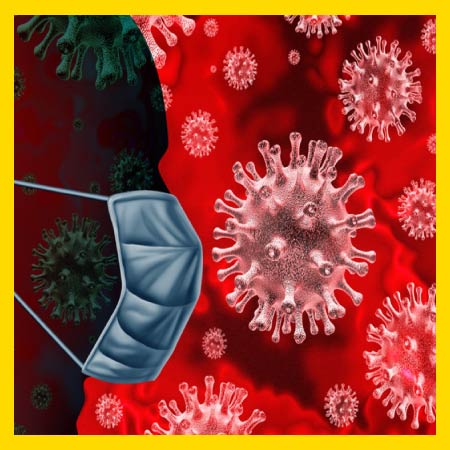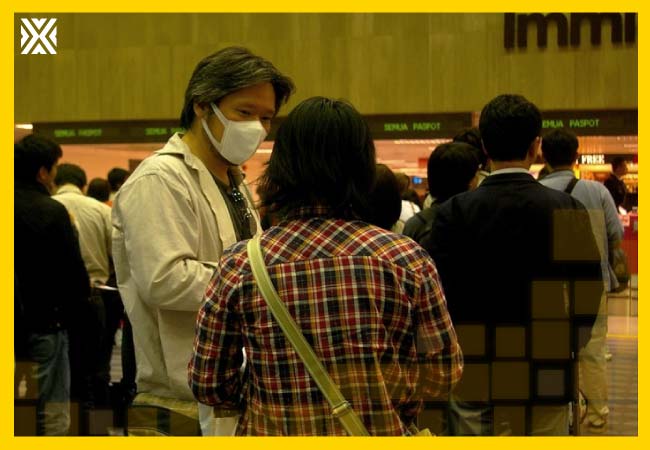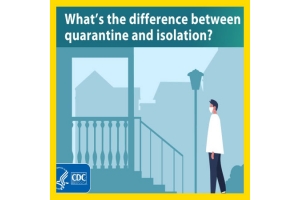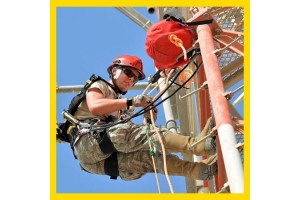Currency
February 02, 2020

Some of the major and busiest international airports in the world have started announcing preventive safety measures against the spread of coronavirus after its outbreak in China and reported spread to more than 20 countries.
Some of the major and busiest international airports in the world have started announcing preventive safety measures against the spread of coronavirus after its outbreak in China and quick spread to more than 20 countries.
The deadly virus that was first found in Wuhan, the capital and the most populated city of Hubei Province, in Central China, is spreading at a rapid pace despite various preventive measures being taken by the Chinese authorities. Deaths caused by the 2019 novel coronavirus (2019-nCoV) have been increasing at a rapid pace from the mere two reported initially to 170 in less than a month.
International passengers travelling from China are naturally the biggest risk to the countries they arrive to. The CDC initially issued a level-3 warning recommending to avoid travel, unless essential, to Wuhan and level-2 warning to the rest of China. But given the fast spread, the CDC revised the travel warning to level-3 for entire China.

Multiple news reports are emerging that the coronavirus has crossed borders, with cases confirmed in the US, Japan, South Korea, Hong Kong, Macau, and Thailand.
With the Center for Disease Control (CDC) having confirmed the first case of a Wuhan coronavirus on 21 January followed by a second on 24 January, three international airports each in the US and Canada officially announced measures against coronavirus to prevent its spread, with European airports too taking similar steps. The CDC expanded the screening to 20 airports within a week due to the growing spread of the virus.
United Airlines announced the cancellation of a number of scheduled flights from US hubs to Beijing, Hong Kong, and Shanghai from 1 February anticipating lower demand due to the nCoV fears. The airline also announced travel waiver from 24 January to 29 February, initially to China and later included Hong Kong. The world’s largest airline, American Airlines, hasn’t announced any cancellations or waivers yet, though.
Air Canada announced similar cancellations of select flights to optimise its capacity based on the reduced demand.i
British Airways suspended direct flights to and from China, following confirmed cases of coronavirus infection in France and Germany.
The Changi Airport in Singapore has started thermal screening for passengers arriving from China, in addition to isolating those with the disease symptoms.
Indigo Airlines and Air India have cancelled majority flights to China, even before the first case was confirmed in the country on 30 January.
China has started taking intensive measures including closing the outbound traffic from Wuhan as millions of people, both local and international tourists, are anticipated to travel on the occasion of the Chinese lunar new year on 25 January. 2019-nCoV cases have also been registered in Beijing and Guangdong of people that travelled to Wuhan.
Airports around China have started screening passengers and immediately admitting those with even the simplest of the symptoms, for special care.
Hong Kong has quarantined the traveller from Wuhan who was found with the coronavirus symptoms to prevent the spread of the novel Coronavirus disease (nCoV). The virus hits at a busy holiday time for the travellers. Hong Kong international airport, which already suffered a drop in passenger traffic in 2019 due to anti-government protests, is taking prompt measures to prevent the potential epidemic.
Planes flying from Wuhan to Hong Kong are being parked at a specially designated area. Cleaning and disinfection are being increased rapidly at the arrival terminal for passengers from Wuhan, as reported by Time.
Hong Kong flag carrier Cathay Pacific and Hong Kong Airlines, meanwhile, plan to cut the flights to China and has started allowing passengers who booked to/from Wuhan to reschedule their trips free of cost.
Airline crew flying to and from South Korean airports are being offered hazardous-material suits, in addition to disinfecting planes more frequently, after the first case of coronavirus infection was reported in South Korea.
Three European airports have direct flights to Wuhan, from major cities such as London, Rome, and Paris. Airlines such as China Southern and Air France offer non-stop flights to Europe throughout the year.
London Heathrow airport has designated a separate area in Terminal 4 to screen the passengers arriving from Wuhan and check for as well as inform the passengers about the symptoms.
The European Union Aviation Safety Agency (EASA) recommended airlines to provide Universal Protection Kits to crew flying to/from the affected countries.
John F. Kennedy, Los Angeles and San Francisco international airports were the first to start screening for the coronavirus, followed by O’Hare and Hartsfield-Jackson international airports. The screening was increased to a total of 20 airports across the US within a week.
Canadian airports including Toronto international airport, Montreal international airport, and Vancouver international airport have announced that international passengers will have to undergo additional screening such as temperature and other symptomatic checks and inquiring about their visits to Wuhan to check for the possibility of having contracted the infection.
The Ministry of Civil Aviation, India, announced multiple preventive measures against the Wuhan coronavirus initially at 11 airports including Chennai, Vishakapatnam, Bengaluru, Bhubaneswar, Hyderabad, Cochin, Delhi, Mumbai, Amritsar, Kochi, and Kolkata.
Thermal screening has been extended to 20 airports with the infection spreading to other countries quickly.
Arriving passengers that travelled to Chinese cities such as Wuhan in the last 14 days and having symptoms of the viral infection are being asked to provide a self-declaration, while international passengers from China and Hong Kong are being screened at the pre-immigration areas of the airports. Thermal cameras are being installed and airport signage being displayed at all the airports.
Kerala is the state with the highest number of coronavirus suspects in India.
Screening stations have been set up at the Auckland and Christchurch airports in New Zealand with more measures expected to be implemented in the future.
Major airports in the UAE including Abu Dhabi and Dubai have started thermal screening of passengers on direct flights from China. The Imam Khomeini International Airport in Iran has also started health screening for patients.
Airports perform thermal screening of passengers to spot fevers caused by infections such as CoV, swine flu, and influenza (such as H1N1). Thermal screening is performed using mass-screening systems that measure the skin temperature at high-speed using thermal imaging and temperature measurement equipment such as the FevIR Scan.
Such quick mass-screening ensures to take security measures without causing delays and discomfort to passengers.
Symptoms of coronavirus infections can begin with simple cold and cough and mild fever, but aggravate if left untreated, leading to more severe respiratory illnesses such as the Middle East respiratory syndrome (MERS). MERS-CoV transmission happens both through humans and animals such as dogs and cats.
No vaccines exist currently to fight the coronavirus, but the National Institutes of Health (NIH) in the US is developing one but that would take at least a year to be available. A number of private pharmaceutical companies are also developing potential vaccines.
Most of the coronavirus drugs in the pipeline are at early stages of development, leaving anti-viral drugs used for other conditions as the only treatment options.
Some of the major and busiest international airports in the world have started announcing preventive safety measures against the spread of coronavirus after its outbreak in China and quick spread to more than 20 countries.
The deadly virus that was first found in Wuhan, the capital and the most populated city of Hubei Province, in Central China, is spreading at a rapid pace despite various preventive measures being taken by the Chinese authorities. Deaths caused by the 2019 novel coronavirus (2019-nCoV) have been increasing at a rapid pace from the mere two reported initially to 170 in less than a month.
International passengers travelling from China are naturally the biggest risk to the countries they arrive to. The CDC initially issued a level-3 warning recommending to avoid travel, unless essential, to Wuhan and level-2 warning to the rest of China. But given the fast spread, the CDC revised the travel warning to level-3 for entire China.

Coronavirus – how airports and airlines are ensuring a safe travel
Multiple news reports are emerging that the coronavirus has crossed borders, with cases confirmed in the US, Japan, South Korea, Hong Kong, Macau, and Thailand.
With the Center for Disease Control (CDC) having confirmed the first case of a Wuhan coronavirus on 21 January followed by a second on 24 January, three international airports each in the US and Canada officially announced measures against coronavirus to prevent its spread, with European airports too taking similar steps. The CDC expanded the screening to 20 airports within a week due to the growing spread of the virus.
United Airlines announced the cancellation of a number of scheduled flights from US hubs to Beijing, Hong Kong, and Shanghai from 1 February anticipating lower demand due to the nCoV fears. The airline also announced travel waiver from 24 January to 29 February, initially to China and later included Hong Kong. The world’s largest airline, American Airlines, hasn’t announced any cancellations or waivers yet, though.
Air Canada announced similar cancellations of select flights to optimise its capacity based on the reduced demand.i
British Airways suspended direct flights to and from China, following confirmed cases of coronavirus infection in France and Germany.
The Changi Airport in Singapore has started thermal screening for passengers arriving from China, in addition to isolating those with the disease symptoms.
Indigo Airlines and Air India have cancelled majority flights to China, even before the first case was confirmed in the country on 30 January.
Intensive measures being taken at Chinese airports
China has started taking intensive measures including closing the outbound traffic from Wuhan as millions of people, both local and international tourists, are anticipated to travel on the occasion of the Chinese lunar new year on 25 January. 2019-nCoV cases have also been registered in Beijing and Guangdong of people that travelled to Wuhan.
Airports around China have started screening passengers and immediately admitting those with even the simplest of the symptoms, for special care.
Measures at Hong Kong international airport
Hong Kong has quarantined the traveller from Wuhan who was found with the coronavirus symptoms to prevent the spread of the novel Coronavirus disease (nCoV). The virus hits at a busy holiday time for the travellers. Hong Kong international airport, which already suffered a drop in passenger traffic in 2019 due to anti-government protests, is taking prompt measures to prevent the potential epidemic.
Planes flying from Wuhan to Hong Kong are being parked at a specially designated area. Cleaning and disinfection are being increased rapidly at the arrival terminal for passengers from Wuhan, as reported by Time.
Hong Kong flag carrier Cathay Pacific and Hong Kong Airlines, meanwhile, plan to cut the flights to China and has started allowing passengers who booked to/from Wuhan to reschedule their trips free of cost.
Coronavirus care at South Korean airports
Airline crew flying to and from South Korean airports are being offered hazardous-material suits, in addition to disinfecting planes more frequently, after the first case of coronavirus infection was reported in South Korea.
Screening at Heathrow, Paris and other European airports
Three European airports have direct flights to Wuhan, from major cities such as London, Rome, and Paris. Airlines such as China Southern and Air France offer non-stop flights to Europe throughout the year.
London Heathrow airport has designated a separate area in Terminal 4 to screen the passengers arriving from Wuhan and check for as well as inform the passengers about the symptoms.
The European Union Aviation Safety Agency (EASA) recommended airlines to provide Universal Protection Kits to crew flying to/from the affected countries.
US and Canadian airports increasingly screening for coronavirus infection
John F. Kennedy, Los Angeles and San Francisco international airports were the first to start screening for the coronavirus, followed by O’Hare and Hartsfield-Jackson international airports. The screening was increased to a total of 20 airports across the US within a week.
Canadian airports including Toronto international airport, Montreal international airport, and Vancouver international airport have announced that international passengers will have to undergo additional screening such as temperature and other symptomatic checks and inquiring about their visits to Wuhan to check for the possibility of having contracted the infection.
Thermal screening at Indian airports
The Ministry of Civil Aviation, India, announced multiple preventive measures against the Wuhan coronavirus initially at 11 airports including Chennai, Vishakapatnam, Bengaluru, Bhubaneswar, Hyderabad, Cochin, Delhi, Mumbai, Amritsar, Kochi, and Kolkata.
Thermal screening has been extended to 20 airports with the infection spreading to other countries quickly.
Arriving passengers that travelled to Chinese cities such as Wuhan in the last 14 days and having symptoms of the viral infection are being asked to provide a self-declaration, while international passengers from China and Hong Kong are being screened at the pre-immigration areas of the airports. Thermal cameras are being installed and airport signage being displayed at all the airports.
Kerala is the state with the highest number of coronavirus suspects in India.
Coronavirus screening at New Zealand, UAE and Iranian airports
Screening stations have been set up at the Auckland and Christchurch airports in New Zealand with more measures expected to be implemented in the future.
Major airports in the UAE including Abu Dhabi and Dubai have started thermal screening of passengers on direct flights from China. The Imam Khomeini International Airport in Iran has also started health screening for patients.
How airports perform thermal screening of passengers
Airports perform thermal screening of passengers to spot fevers caused by infections such as CoV, swine flu, and influenza (such as H1N1). Thermal screening is performed using mass-screening systems that measure the skin temperature at high-speed using thermal imaging and temperature measurement equipment such as the FevIR Scan.
Such quick mass-screening ensures to take security measures without causing delays and discomfort to passengers.
Coronavirus symptoms
Symptoms of coronavirus infections can begin with simple cold and cough and mild fever, but aggravate if left untreated, leading to more severe respiratory illnesses such as the Middle East respiratory syndrome (MERS). MERS-CoV transmission happens both through humans and animals such as dogs and cats.
Coronavirus vaccine
No vaccines exist currently to fight the coronavirus, but the National Institutes of Health (NIH) in the US is developing one but that would take at least a year to be available. A number of private pharmaceutical companies are also developing potential vaccines.
Coronavirus / MERS-CoV treatment
Most of the coronavirus drugs in the pipeline are at early stages of development, leaving anti-viral drugs used for other conditions as the only treatment options.









